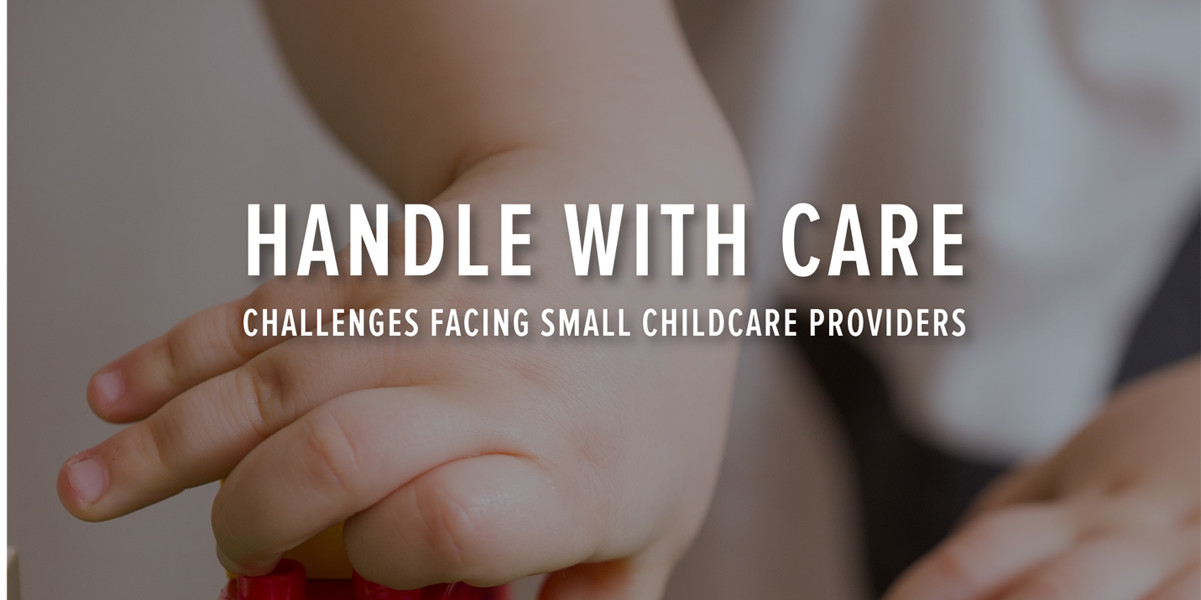Foreword
There is undoubtedly a sound economic case for investing in high-quality childcare. Alongside representing an invaluable investment in our children’s education and development, it allows parents to work thus benefitting families, businesses and the wider economy.
A large portion of the childcare sector in England consists of small and micro businesses and the self-employed; for this reason their voice must be heard. Our research shows that many of our members running nurseries, pre-schools and childminding businesses are feeling the pressure as a result of the rising costs of doing business combined with significant recent changes in Government policy; in particular, the introduction of 30 hours free childcare for an estimated 390,000 eligible families in England.
While it is undoubtedly the case that businesses in all sectors have experienced an increase in operating costs (in particular, the cost of employment), the early years childcare sector is particularly hard hit as it is characterised by high staffing levels and relatively low pay. This is leaving some childcare providers struggling to make ends meet.
This policy paper explores the scale of the challenges facing small childcare providers and makes recommendations on how the sector, and the small businesses within it, could be better supported.
While we highlight small childcare providers’ concerns about a policy that leaves many of them operating at a loss, it also finds that delivering a high-quality early years offer is a source of great pride to every childcare professional interviewed. Indeed, many of the childcare providers we spoke to said they would prefer to shut their doors forever, than provide a service to parents and children that they didn’t believe to be of high-quality.
With small firms making up the majority of the childcare provision available in the marketplace, the right policy, funding and support must be available to enable them to deliver a high-quality, affordable and transparent offer to parents. Without this we not only risk the closure of small businesses that are the linchpins of their local communities, but also compromise the longer-term sustainability of the sector.

Introduction

The childcare sector has witnessed a number of policy changes in recent years that have led nurseries, pre-schools and childminders to rethink and redesign their offer to parents. One of the most significant of these changes occurred on 1 September 2017 when the Government doubled the number of hours of free childcare that working families with three- and four-year-olds are entitled to, from 15 to 30 hours per week. It was estimated that this would be worth up to £5,000 per child per year, and aimed at helping parents manage childcare costs and working patterns, with around 390,000 working families in England thought to be eligible.[1]
At the time, an independent evaluation of the early rollout of 30 hours free childcare for the Department for Education (DfE) found that 83 per cent of childcare providers were willing and able to double their current 15 hours offer.[2] Yet, less than a year on from the national rollout, small childcare providers are facing significant challenges to delivering this offer in the context of increasing business pressures.

Small, single-site providers with limited scale economies make up the majority of the 89,000 providers of childcare in England.[3] As such, ensuring the 30 hours free policy meets providers’ needs is essential to sustaining a well-functioning childcare system that benefits the economy and provides parents with affordable, high-quality childcare that allows them to balance their jobs and family lives.
Drawing on interviews with small childcare providers currently offering the 30 hours free, this policy paper explores their personal experience of offering the entitlement and the challenges they face as a result. It also makes a series of recommendations to Government aimed at providing better support to these businesses to achieve longer-term sustainability, which will help the childcare sector as a whole.
In March 2018, telephone interviews were held with nine individuals that own and run small childcare businesses in England, and currently offer the 30 hours free to parents. Their businesses are located in

Dorset, Essex, Greater Manchester, Oxfordshire, East Anglia and Wiltshire, and include pre-schools, nurseries and childminders. Some business owners interviewed had more than one site or ‘setting’ or type of childcare they provide. Each interview explored the nature of the interviewee’s business and the type of childcare provision they offer; the composition of their staff, and their training and qualifications requirements; business costs, including the impact of National Living Wage (NLW)[4] and pension auto-enrolment; and the reasons for their decision to offer the 30 hour free to parents, and the impact of this decision on their business.
An expert interview was also conducted with the Pre-school Learning Alliance, the largest early years membership organisation in England.
[1] Gov uk press release, 30 hours free childcare launches, Department for Education, 31 August 2017
[2] Department for Education, Evaluation of early rollout of 30 hours free childcare, Research Report, August 2017
[3] Department for Education, Childcare and early years providers survey, Official Statistics, February 2017
[4] The National Living Wage was introduced in April 2016 and sets the minimum wage for workers over the age of 25 With the aim of reaching 60 per cent of median earning by 2020 The Minimum Wage for workers below the age of 25 has also seen increases
Key recommendations
Download the full report below.





